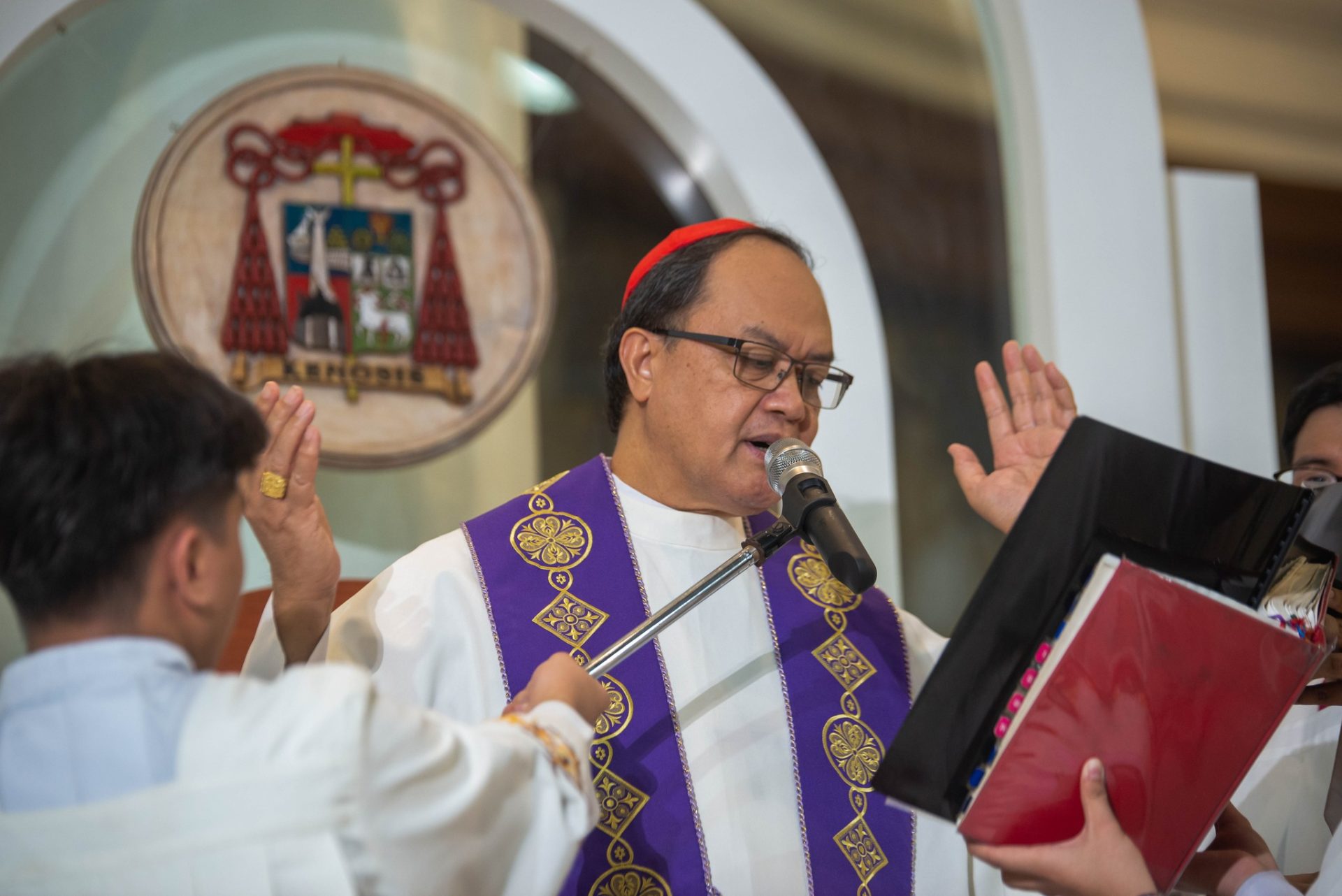Cardinal Pablo Virgilio David, President of the Catholic Bishops’ Conference of the Philippines (CBCP), warned against hypocrisy in faith and public service, cautioning that acts of charity and devotion lose their meaning when done “in an obvious way just to boast.”
In his Ash Wednesday homily on March 5, the Kalookan bishop called on Catholics to embrace genuine charity, holiness, and penance, rather than using them as a means for self-promotion or public recognition.
“When the true intention behind doing good is to draw attention to oneself, it has nothing to do with God,” Cardinal David said.
“There is a difference between doing good deeds in front of others, which may be captured unknowingly in a video and shared, inspiring many people, and doing good deeds in an obvious way just to boast: ‘Look how good I am!’ or ‘Look how holy I am!’” he added.
He warned against the Filipino trait of pakitang-tao, or performative goodness, which he described as pretense and deception.
“We might deceive others, but can we deceive God, who sees what is hidden deep in our hearts?” he asked, citing the Gospel reading from Matthew 6:1-6, 16-18. “We’ve heard it several times in the Gospel today: ‘The God who sees what is hidden will reward you.’”
‘Not all gifts are truly gifts’
Cardinal David particularly called out the misuse of charity for personal or political advantage, saying that giving is only meaningful when it is done without expecting something in return.
“Not all gifts are truly gifts, right? Some are simply bribes, with something expected in return,” he said. “Some ‘help’ isn’t really help—it’s a form of manipulation or an exchange, like buying votes with ‘aid.’”
The prelate criticized the use of both personal and public funds as political tools.
“It is wrong even when personal money is used to buy votes. What is worse is when public funds, which come from the taxes of the people, are used as personal funds,” he said. “You do not call it charity when the objective is to exploit the desperation of the poor. What will the nation gain if we put such people in power?”
‘Rend your hearts, not your garments’
Beyond material generosity, the CBCP president also emphasized that true holiness comes from sincerity and compassion, not from external displays of religiosity.
Quoting the prophet Joel, he said, “Rend your hearts, not your garments,” reminding Catholics that ashes on the forehead should be a symbol of humility, not a mere tradition.
He also cited Isaiah: “These people honor Me with their lips, but their hearts are far from Me.”
“True holiness is seen in compassion, kindness, and heroism. Devotion without love is just empty performance,” Cardinal David said. “God sees the hidden difference between true holiness and mere show.”
Fasting without justice is empty
Cardinal David also addressed the meaning of fasting, warning against reducing it to mere dietary restrictions rather than a genuine act of spiritual renewal.
“How can you call it fasting if you order lobster or seabass in an expensive restaurant in place of meat?” he asked. “Let us not call it a Lenten fasting if the intention is just to lose weight or become sexier.”
He urged Catholics to embrace fasting as a call to justice and solidarity with the poor, citing Isaiah’s challenge:
“Is it not this: to loose the chains of injustice, to untie the cords of the yoke, to set the oppressed free, and to share your food with the hungry, to provide the poor wanderer with shelter?”
Call for sincerity
As millions of Filipino Catholics received ashes to mark the beginning of Lent, the CBCP president called on them to reflect on their true motives in practicing their faith.
“Training ourselves in unseen penance, holiness, and charity—this is the true purpose of the Lenten season,” he said.
Cardinal David’s homily served as a sharp rebuke to those who use good deeds as a means for personal gain, reminding the faithful that the essence of faith lies not in appearances, but in what is hidden—where only God can see.







